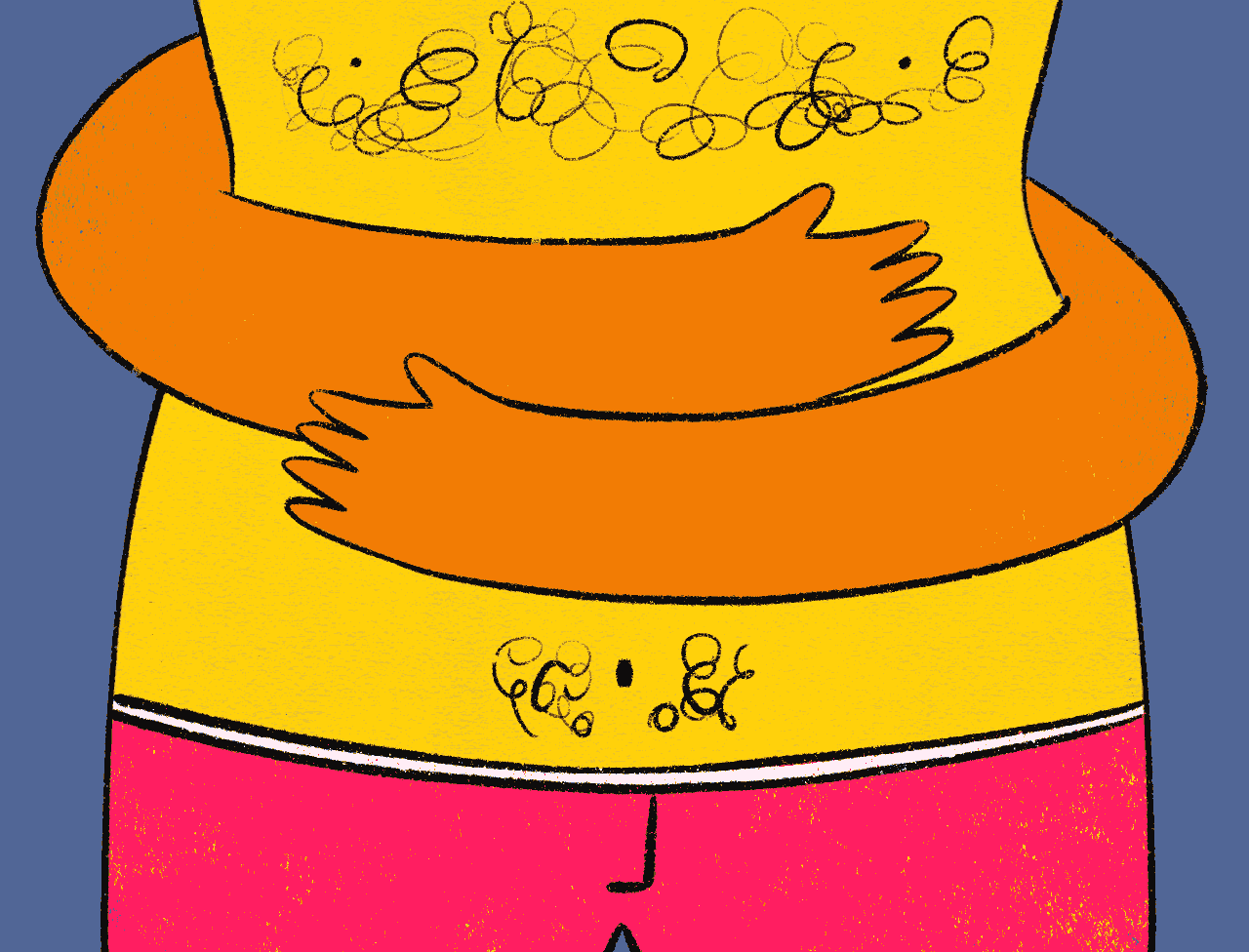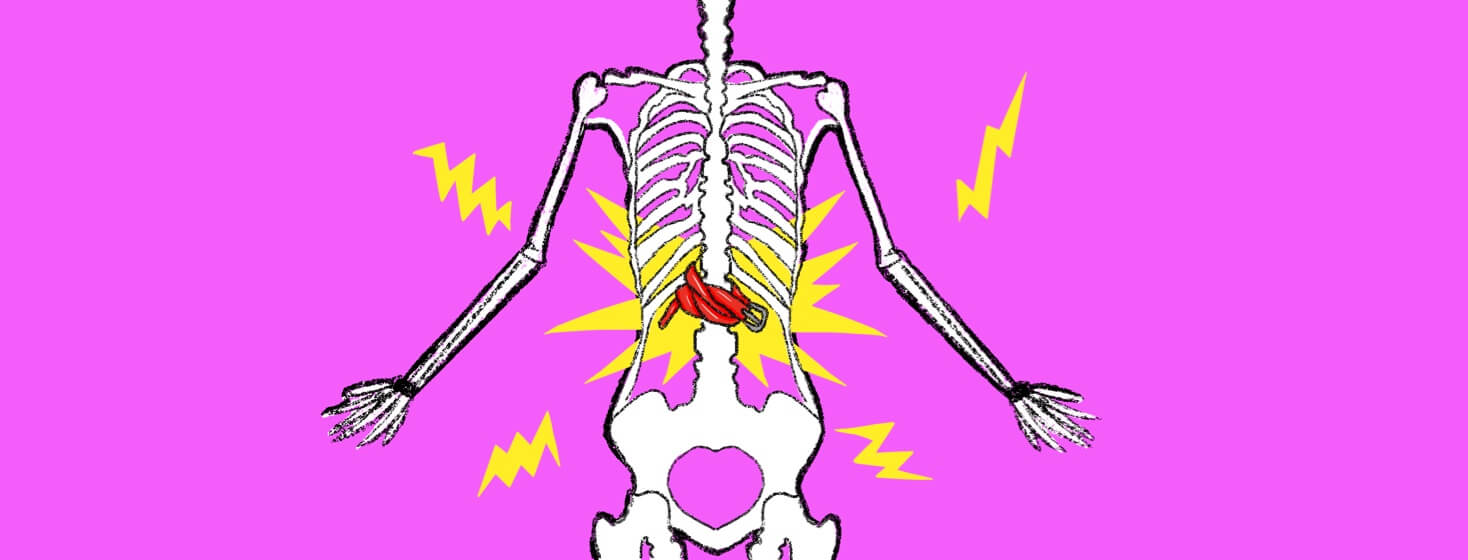Everybody Loves a Hug, but Not MS Hugs. What Is an MS Hug?
I love hugs. I love giving hugs. I love hugging my husband, my son, my cats, my family, and my friends. I’ve even been known to hug a dish of homemade chocolate ice cream drenched in hot fudge sauce. But an MS hug? That is one hug I could easily live without.
After living with MS for 26 years and tolerating a seemingly permanent MS hug, I rarely notice the tight squeeze around my stomach. Would I like to live without it? In a New York minute.
A common symptom of MS, the MS hug, is like MS itself. It’s different for each person. Yet it continues to be one of the most common questions among patients.

What is the MS hug?
An MS hug feels like a band, or girdle-like, sensation tightening around your waist. People sometimes describe it as annoying. Others say it can become quite painful.
After searching the web, I could not find statistics on the number of people with MS that experience this sensation. If it were classified in the category of pain, up to 75% of people with MS experience some type of pain.1
The MS hug, like other MS-related neurological symptoms, can come from damage to an area of the spinal cord that sends nerves to the abdomen and chest.2-5
A slight tickle to a stabbing pain
The hug itself is different for everyone, and it can also differ within one person every day, week, or month. It may not only occur in the stomach region, but can also occur low in the waist or high in the chest. It can give you trouble on one side of your body or both. Stress and fatigue may trigger it. It can last for seconds, minutes, or hours. The hug can range anywhere between a slight tickle to a stabbing pain.4,5
While the MS hug is generally not dangerous, it's advised to call your doctor or go to the nearest emergency room if breathing becomes painful or the pain is extreme. Make sure to tell them you have multiple sclerosis.4
How to treat the MS hug
Steroids may be prescribed if your hug is caused by an exacerbation. There are also various medications that may be prescribed. They include antispasticity medications, such as Lioresal and Zanaflex, or neuropathic pain relief medications such as Lyrica.4,5
Generally, though, the MS hug can go away without requiring treatment. But it's important to look for possible triggers. Tight clothing is a trigger for some, but the triggers vary per person.4,5
How I manage MS hugs
I know from personal experience that the MS hug doesn’t necessarily mean someone is having an exacerbation. It could also be a pseudoexacerbation. My hug worsens if I'm feeling overly tired or I'm experiencing a lot of stress. What do I do to help manage it?
- Meditation and deep breathing
- Rest
- Cool off (sometimes with the help of cooling vests)
- De-stress (I read, write, knit, watch old movies)
- Take breaks while working
- Stop worrying!
Do you experience MS hugs?

Join the conversation